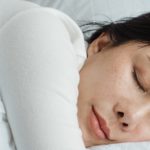Many people diagnosed with substance use disorder (SUD) experience depressive symptoms. The prevalence of depression is not unusual. Clinical depression is one of the most common mental health disorders diagnosed worldwide. According to the Centers for Disease Control and Prevention (CDC), 4.7% of adults regularly feel depressed.
Substance abuse can cause changes in the brain that lead to the development of depression. In some cases, substance abuse is used as a form of self-medication to cope with the symptoms of pre-existing depression. Newport Beach Recovery Center provides evidence-based treatment to help clients manage depressive symptoms related to SUD and co-occurring conditions during rehabilitation.
How Common Is Depression?
Many people experience depressive symptoms at some point in their lives. However, nearly twice as many individuals with SUD have depressive episodes compared to the general public. According to the Substance Abuse and Mental Health Services Administration (SAMHSA), in 2019, 7.8% of adults with SUD experienced depressive episodes. The number of individuals with SUD who have major depressive symptoms has continued to increase in the last decade. COVID-19, increased economic stress, and other factors have contributed to the increase of people struggling with depression. Some risk factors for developing depressive symptoms include:
- Substance abuse
- Financial issues
- Relationship problems
- Childhood abuse or neglect
- Trauma
- History of mental health disorders
- Lack of emotional support
- Unsafe living environment
- Emotional or physical isolation
- Genetics
- Age
According to the CDC, individuals between the ages of 18 and 29 have the highest risk of becoming clinically depressed. In addition, this age range is more likely to abuse alcohol and other mind-altering substances. As such, we need to check on our younger loved ones and help them get the medical care that they need.
Substance Abuse and Changes the Brain
Alcohol and drugs produce physiological changes that affect mood and cognition. The side effects stop certain areas of the brain from working as effectively. As a result, some people develop anxiety, depression, and other mental health symptoms. Teens and young adults who abuse substances can affect their developing brains and potentially cause long-term damage. In many cases, the effects of substance abuse on the brain reverse themselves in time. However, certain mood changes might take longer to dissipate, and they could require prescription medications like antidepressants to manage the symptoms.
Additionally, prolonged use of substances can start to deteriorate certain areas of the brain. This leads to a less functional and cognitively-impaired brain. The change in functionality can cause enough mental distress to trigger a depressive episode.
Depression and Co-occurring Disorders
Many co-occurring mental health disorders feature depressive symptoms. According to Science and Practice Perspectives, “Mood disorders, including depression . . . are the most common psychiatric comorbidities among patients with [SUD].” Comorbid depression exists along a spectrum. Some individuals may barely notice it, while others might have difficulty functioning in their day-to-day lives due to depressive episodes and other side effects.
During treatment for SUD, it is essential for anyone struggling with co-occurring conditions to participate in simultaneous treatment addressing all active and underlying mental health issues. The most common forms of treatment for depression include:
- Psychotherapy
- Prescription medication
- Biofeedback
- Transcranial magnetic stimulation (TMS)
- Alternative holistic therapies
During treatment at Newport Beach Recovery Center, you will collaborate with your care team to determine the best approach to treatment and therapy. This may include inpatient residential treatment or a partial hospitalization plan to start with. Afterward, you may switch to a less intensive treatment plan like intensive outpatient or outpatient aftercare.
How Does Depression Impact Recovery?
Depression exists along a spectrum, and severe symptoms can significantly impact recovery. Some individuals with depression have difficulty completing basic tasks of daily living, including:
- Getting out of bed
- Dressing appropriately
- Maintaining personal hygiene
- Preparing, eating, and cleaning up after meals
- Staying motivated
- Housekeeping
- Maintaining essential relationships
- Attending mandatory treatment sessions
Depression can cause you to withdraw and isolate yourself from others as a way to protect yourself from emotional distress. However, it is crucial to actively communicate your needs and nurture your close relationships. Family support can provide significant motivation for individuals with depression.
Depression and Your Loved Ones
Close family members and friends may have difficulty understanding the realities of depression and how it impacts your everyday life. In many cases, depression affects relationships. You must actively work to communicate your needs and concerns. If you do not discuss your depressive episodes with them, they may react based on assumptions instead of facts. It is vital to remain open and objective when discussing mental health issues to protect your loved ones and yourself from misunderstandings. Let them know your needs during depressive episodes.
Some people have a genetic predisposition to developing depression. The disorder or symptoms may run in the family. However, every person reacts differently to depression. In addition, substance abuse can significantly increase the severity of depressive episodes. If you’ve been diagnosed with depression and your symptoms look much different than those of a family member, educating them on the realities of addiction and dual diagnosis can help them understand your situation better.
Treatment Options for Individuals in Recovery
The most successful and common treatments for depression include prescription medication and talk therapy. We can accommodate dual diagnosis with primary substance abuse. Alternative treatment options offered by Newport Beach Recovery Center include:
- Biofeedback
- Mindfulness-based stress reduction (MBSR)
- Creative healing
- Hypnotherapy
Clients at the Newport Beach Recovery Center participate in group and individual trauma therapy. In many cases, addressing underlying issues like trauma can reduce symptoms related to anxiety or depression. Processing trauma allows you to find healthier ways to cope with the symptoms of SUD. You can collaborate with your therapist to determine the best therapeutic method to address your depression and other co-occurring disorders.
Many people recovering from substance abuse experience depressive symptoms related to their condition or co-occurring disorders. In some cases, depression is caused by substance abuse and physical changes to the brain. Other individuals have underlying issues or completely separate issues that contribute to the development of depression. You can successfully recover from depression and SUD by participating in dual-diagnosis treatment. Newport Beach Recovery Center uses evidence-based methods, including psychotherapy and alternative therapies, to treat substance abuse and dual diagnoses. In groups, you’ll also engage in behavioral activation to counteract depression and SUD. To find out more about our treatment programs and services, call us at (888) 850-0363. Start your healing journey from co-occurring depression and SUD today.



